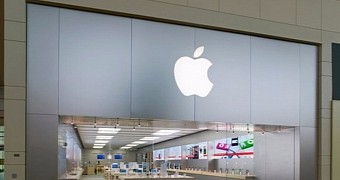The legal fight between Apple and Qualcomm won’t come to an end anytime soon, as neither is willing to give up despite losing smaller battles in court.
Most recently, Apple’s iPhones were banned in China after a local court found that a series of models indeed violate three Qualcomm patents.
But despite the decision, Apple keeps selling its iPhones in China, according to Qualcomm, who most recently complained to the court and shared a video showing Cupertino’s devices being sold and unboxed.
However, this is exactly what Apple said it would happen earlier this week after the company announced it would file an appeal with the Chinese court and continue selling iPhones on the local market despite the recent ban.
“All iPhone models remain available for our customers in China. Qualcomm is asserting three patents they had never raised before, including one which has already been invalidated. We will pursue all our legal options through the courts,” the company said.
The banned devices were iPhone 6S, iPhone 6S Plus, iPhone 7, iPhone 7 Plus, iPhone 8, iPhone 8 Plus and iPhone X, according to the ruling.
iPhones running older iOS versions targeted, says Apple
Apple claims Qualcomm’s case is built on patents that have nothing to do with the latest versions of iOS, and adds that only older iPhone models that haven’t been updated to the newest releases of its mobile operating system can be targeted by the court order.
Qualcomm has previously accused Apple of disclosing details regarding its technology to rival Intel, while also claiming that Cupertino must pay nearly $7 billion in royalties. On the other hand, Apple, which has given up on Qualcomm chips in favor of Intel modems, says it’s being required to pay much more than all the other companies buying the same technology.
Both have file lawsuits and counter-lawsuits in several courts, and there’s no doubt this legal fight won’t come to an end too soon.

 14 DAY TRIAL //
14 DAY TRIAL //